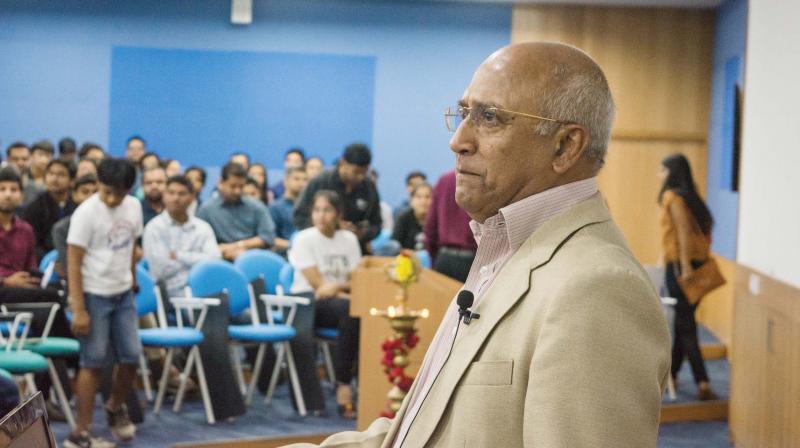Space travel for Indians a reality soon: Rakesh Sharma
He said the time is near as ISRO is close to making it a reality through its various indigenous projects.

Bengaluru: Almost 34 years after travelling to space, India’s only space traveller Rakesh Sharma is hopeful of seeing a successor soon. On the sidelines of Sangam, the annual alumni meet held at International Institute of Information Technology Bangalore (IIIT-B) on Saturday, he said the time is near as ISRO is close to making it a reality through its various indigenous projects. Excerpts from his chat with Deccan Chronicle:
It has been more than three decades after you became the first Indian citizen to visit space and you are yet to witness a successor. What are your hopes on the same and how far are we from making that happen?
Almost 34 years down the line, technology has changed and this has helped more innovative solutions to take form towards many initiatives led by the Indian Space Research Organisation (ISRO), with the manned space programme being one among them. With a good share of preliminary work already taking place at ISRO, over time we have proved that there is no question of a capability deficit. ISRO’s own recovery vehicle landing back in the designated landing area at Bay of Bengal and some of the other major technologies required for the space flight being tested successfully repeatedly prove that the time is near. Continuity of funding is essential for the overall development of the programme. Once it is done and priorities are set, we’ll soon see more Indians making it to the space and beyond. I have also been interacting with them over these years and in fact, I would be visiting them at Ahmedabad next week. Alongside proper funding, the programme should be time-bound and well thought with a proper plan of action identifying strengths and constraints – something which teams at ISRO are always capable of.
With the debate of science v/s superstition garnering more traction, amid remarkable technological advancements, have you ever felt that the latter is gaining more popularity within our societies?
I personally haven’t felt that superstition is getting popular nowadays, but yes, modifying societal behaviour is something that has to be thought of. As a society, our upbringing has also played an influential role in this. Therefore, getting scientific exposure is quintessential. The more people are exposed to science, the more we will move away from superstition.
Travelling to and being at space, what has been your biggest learning and experience?
Watching sunrise and sunset from space, which is a beautiful sight, has been a personal privilege I have attained while being there. Another reflection from within I felt was that there was nothing which was neither visible and nor with a supportive environment as to how Planet Earth is. That later led me to the realisation with force that the environment needs to be conserved and protected by all means.
Your advice to aspiring astronauts from India?
The future is very bright for young Indians as work has already started towards making their dreams a reality. It is high time we realise that you cannot keep humanity away from space and beyond. Such aspirations will become even more meaningful once the manned space programme takes an official form and is announced. As days pass, a lot more career options will open, probably, when space gets colonised. We have to be prepared in all aspects to make the most of the situation being future-ready with passion, innovative ability, attitude and integrity being co-travellers always with the individual.

